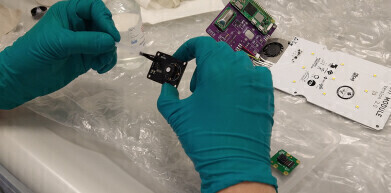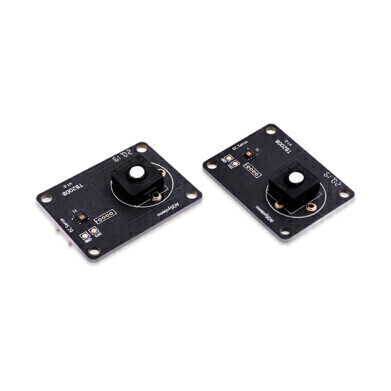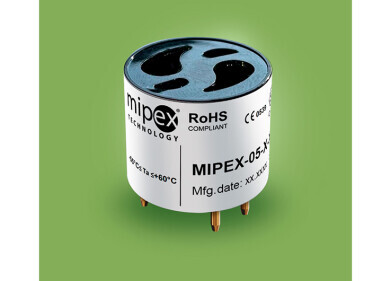Gas Detection
Oxygen electrochemical gas sensing for the space age
Sep 11 2023
Students from Hannover’s Leibniz Unversity were selected to launch their experiment into space to the International Space Station (ISS). The space shuttle was launched in March, with the Glücksklee experiment and EC Sense’s oxygen gas sensor on board.
The experiment aims to study the partnership between clover plants and rhizobia bacteria in microgravity. The symbiosis between the plant and the bacterium results in self-fertilisation. Gravity usually plays a significant part in plant growth; therefore, self-fertilisation and growth under space conditions will be monitored by the team.
The plants will grow on the ISS while undergoing constant monitoring, using a variety of sensors. Oxygen levels will be monitored using EC Sense’s TB200B-ES1-O2-25% sensor module.
The team chose clover not only because of its associating with good luck, but also because it is part of the legume plant family, and thus related to peas and lentils. These foods have high levels of protein, therefore ideal for consumption during long space missions to provide a suitable source of nutrition to astronauts.
The EC Sense-Team is very proud to see their technology heading to space and support the scientists of the future on such an important mission.
Digital Edition
AET 28.2 April/May 2024
May 2024
Business News - Teledyne Marine expands with the acquisition of Valeport - Signal partners with gas analysis experts in Korea Air Monitoring - Continuous Fine Particulate Emission Monitor...
View all digital editions
Events
Jul 30 2024 Jakarta, Indonesia
China Energy Summit & Exhibition
Jul 31 2024 Beijing, China
2024 Beijing International Coal & Mining Exhibition
Aug 07 2024 Beijing, China
IWA World Water Congress & Exhibition
Aug 11 2024 Toronto, Canada
Aug 25 2024 Stockholm, Sweden and online










.jpg)








